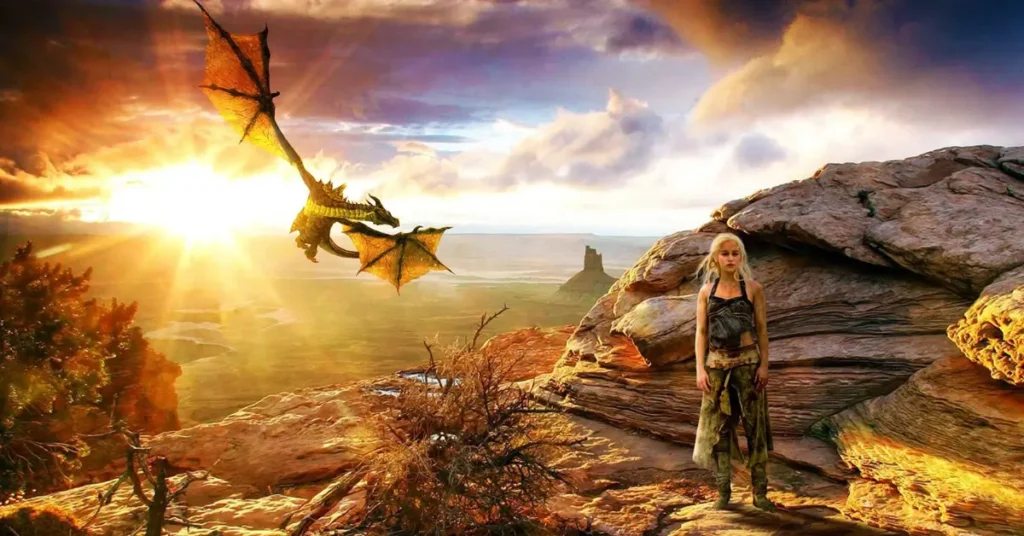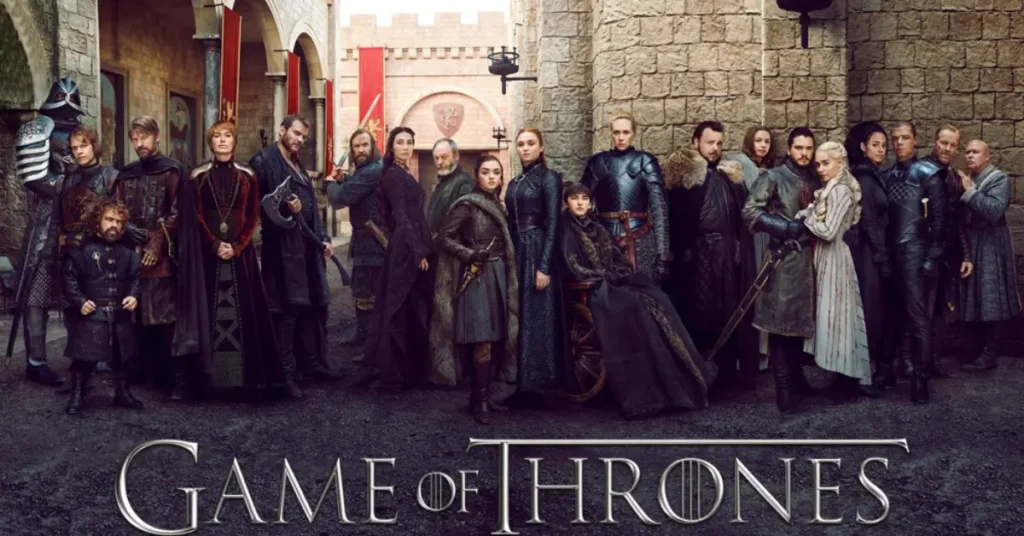Kit Harington: The Man Behind Jon Snow and Beyond
Introduction to Kit Harington
Kit Harington, born Christopher Catesby Harington, rose to international fame through his portrayal of Jon Snow in HBO’s groundbreaking series Game of Thrones. This British actor’s journey from theatrical productions to becoming one of Hollywood’s most recognizable faces represents a meteoric rise in the acting career of someone who initially had no intentions of pursuing performance arts. Harington’s brooding intensity, emotional depth, and commitment to his craft have established him as more than just a fantasy series star, but as a versatile actor capable of inhabiting complex characters across various mediums. His transformation from an unknown drama school graduate to a household name demonstrates the unpredictable and remarkable paths that define truly special careers in Hollywood.
Thank you for reading this post, don't forget to subscribe!Early Life & Career Beginnings
Born on December 26, 1986, in Acton, London, Kit Harington comes from a lineage connected to British nobility and notable historical figures. His mother named him after Christopher Marlowe, perhaps foreshadowing his eventual theatrical career. However, acting wasn’t always Harington’s planned trajectory. He initially aspired to become a journalist, war correspondent, or cameraman before discovering his passion for acting during his school years.
Harington’s formal training began at the Central School of Speech and Drama in London, from which he graduated in 2008. His professional breakthrough came shortly after graduation when he landed the role of Albert in the West End production of “War Horse” a critically acclaimed play that showcased his ability to convey profound emotion and physical expressiveness. This theatrical success laid the foundation for what would become a career-defining opportunity.
Filmography & Career Highlights
While Kit Harington’s filmography spans various projects, his name became synonymous with Jon Snow when he was cast in Game of Thrones in 2011. For eight seasons, Harington embodied the brooding, honorable, and complex bastard son of House Stark, growing from a naive young man to a battle-hardened leader. His performance captured both vulnerability and strength, making Jon Snow one of the most beloved characters in television history.
Beyond Westeros, Harington has demonstrated his versatility in films such as:
- “Pompeii” (2014), where he played a gladiator in the doomed Roman city
- “Testament of Youth” (2014), a World War I drama showcasing his emotional range
- “7 Days in Hell” (2015), revealing his aptitude for comedy
- “Gunpowder” (2017), a historical miniseries he also produced about his ancestor Robert Catesby
- “Eternals” (2021), marking his entry into the Marvel Cinematic Universe
His transition to stage work after Game of Thrones included starring in “True West” in London’s West End and “Henry V” at the Donmar Warehouse, affirming his commitment to classical training and theatrical roots.
Acting Style & Techniques
Kit Harington approaches his craft with a blend of method acting principles and classical training. When preparing for Jon Snow, he immersed himself in understanding the psychology of a character who constantly feels like an outsider. This dedication extended to physical preparation learning swordsmanship, riding, and even battling through real mud and blood during the show’s epic battle sequences.
Harington’s acting is characterized by physical commitment and emotional authenticity. For “Pompeii,” he underwent an intense training regimen to transform his body, while for “Testament of Youth,” he studied footage and accounts of World War I soldiers to capture their mannerisms and psychological states.
Directors who have worked with Harington consistently praise his professionalism and determination. Miguel Sapochnik, who directed some of Game of Thrones’ most ambitious episodes, noted Harington’s willingness to perform grueling physical scenes repeatedly until they achieved perfection. His work ethic extends to meticulous research and psychological preparation, regardless of the role’s size or nature.
Challenges & Controversies
Kit Harington’s journey hasn’t been without obstacles. Following the conclusion of Game of Thrones, he openly discussed struggling with the immense pressure and mental health challenges that accompanied his sudden fame. In 2019, he checked himself into a wellness retreat to deal with stress, exhaustion, and alcohol use a brave decision that later inspired conversations about mental health in the entertainment industry.
Professionally, Harington faced the challenge of potential typecasting after his iconic role as Jon Snow. Some of his post-Game of Thrones projects received mixed reviews, raising questions about whether he could escape the shadow of the character that made him famous. The actor has acknowledged these concerns, strategically choosing diverse roles to showcase his range beyond the stoic hero archetype.
The controversial final season of Game of Thrones also placed Harington in a difficult position of defending creative decisions that many fans rejected, illustrating the unique pressures faced by actors in globally popular franchises.
Awards & Recognitions
Throughout his career, Harington’s performances have earned him significant acclaim and recognition from the industry. For his work on Game of Thrones, he received:
- Emmy nomination for Outstanding Lead Actor in a Drama Series
- Golden Globe nomination for Best Actor in a Television Series – Drama
- Screen Actors Guild Award nominations as part of the ensemble cast
While many critics felt his nuanced portrayal of Jon Snow deserved more individual accolades, Harington’s contributions to one of television’s most awarded shows have firmly established his place among this generation’s notable performers.

Cultural & Industry Impact
Kit Harington’s portrayal of Jon Snow transcended mere character work to become a cultural phenomenon. His performance helped usher in television’s “golden age,” where the line between film and television acting blurred, elevating the medium’s prestige. The character’s famous phrases and Harington’s distinctive look spawned countless memes, costumes, and references in popular culture.
More significantly, Harington has used his platform to advocate for mental health awareness in the entertainment industry. By speaking candidly about his own struggles, he has helped normalize conversations about the psychological toll of fame and high-pressure environments in Hollywood.
His career trajectory has also influenced a generation of young actors on how to navigate the transition from a definitive role to a diverse, sustainable career balancing commercial projects with more intimate, artistic endeavors.
Personal Life & Philanthropy
Away from the camera, Kit Harington maintains a relatively private life. He married his Game of Thrones co-star Rose Leslie in 2018, with whom he now has two children. The couple resides primarily in the English countryside, reflecting Harington’s preference for quiet normalcy over Hollywood glamour.
Harington supports several charitable causes, including Mencap, which works with people with learning disabilities, and has participated in various fundraising events for cancer research. His advocacy extends to environmental causes, having spoken out about climate change concerns and sustainability in the film industry.
Unlike many celebrities, Harington maintains minimal social media presence, choosing instead to focus on his craft and family a decision that aligns with his often-expressed desire for authenticity over celebrity culture.
Future Projects & What’s Next
Following his post-Game of Thrones reset, Kit Harington has been selective about his projects, focusing on quality over quantity. His recent entry into the Marvel universe suggests a willingness to return to large-scale productions, while his continued stage work demonstrates his commitment to artistic growth.
Upcoming projects indicate Harington’s interest in expanding his repertoire:
- “Extrapolations,” an Apple TV+ anthology series about climate change
- “Blood for Dust,” an action thriller showing a grittier side to his acting range
- Rumored involvement in a Game of Thrones spin-off centered around Jon Snow, potentially giving him creative input as both actor and producer
Additionally, Harington has expressed interest in writing and directing, suggesting a potential expansion of his creative horizons beyond acting.
Conclusion
Kit Harington’s journey from drama school graduate to globally recognized actor represents more than just professional success it illuminates the transformative power of finding one’s true calling and pursuing it with unwavering dedication. His willingness to tackle challenging roles, confront personal demons publicly, and consistently return to his theatrical roots reveals an actor committed to authentic artistry rather than mere celebrity.
What distinguishes Harington in Hollywood’s competitive landscape is his balanced approach to fame and craft leveraging his success to pursue meaningful projects while maintaining perspective on the industry’s ephemeral nature. As he continues to evolve beyond the role that defined his early career, audiences and critics alike watch with interest to see how his artistic voice develops.
What is your favorite performance by Kit Harington, and how do you think he has evolved as an actor since his breakthrough role?


